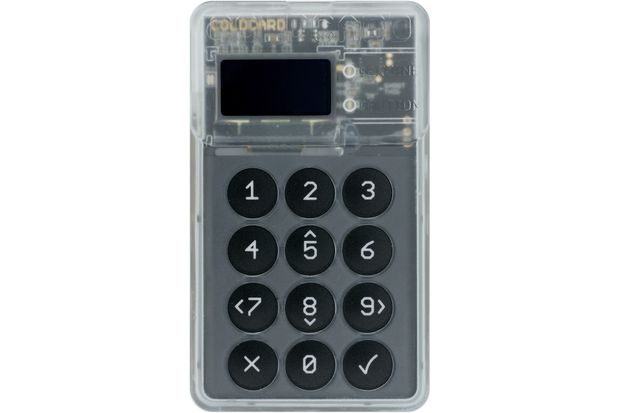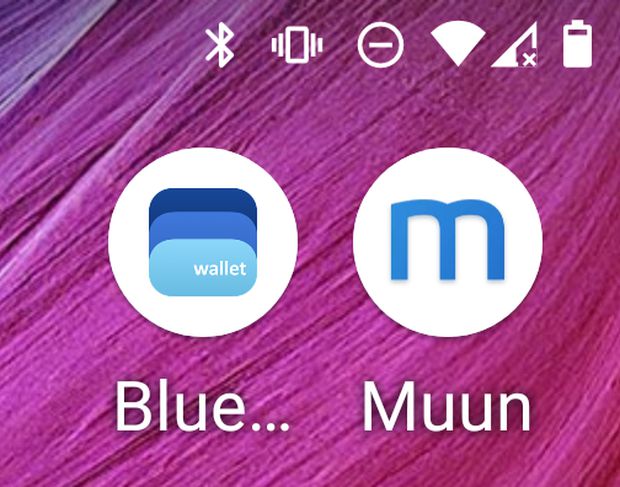Beginner questions answered
Bitcoin has been around for over a decade now and it has stood up to every technological test thrown at it. Buying bitcoin and investing, or better saving in Bitcoin is likely a smart approach moving forward as fiat money depreciates. The quick answer to the question is yes, to store bitcoin yourself, you need a wallet. That’s because of the way the bitcoin network works. Bitcoin stored on exchanges is also stored on wallets, which are controlled by the exchange, not you. Everybody storing bitcoin is using a wallet to do so. Let’s dig into this in detail:

Bitcoin Storage on Exchanges
After buying bitcoin on an exchange, you have the option to transfer it off the exchange into your own wallet (explained further down), or to leave it on the exchange. Storing bitcoin on exchanges, while possible, is not advisable for a variety of reasons and risk factors. Bitcoin is controlled with keys. The owner of the keys controls the bitcoin in a sense that they can move the bitcoin. The saying in the space goes not your keys, not your coins. That’s because there have been many incidents over the years, where people lost their bitcoin because they kept it stored on an exchange.
Exchanges can get hacked and funds stolen that way or rogue employees and management can steal your bitcoin if you leave it on an exchange.
That’s why storing bitcoin on an exchange is not advisable. It is possible to do so while you learn the ins and outs about self-custody but be forewarned that loss of funds is a distinct possibility if exchange storage is your solution.
Custodial wallets
Custodial wallets are wallets that store your keys for you. They have similar attack vectors as exchanges and offer no added security to you because you do not control your own keys using a custodial wallet. They are usually very easy to setup, but so are software wallets on a phone or computer. We recommend against using custodial wallets for beginners and would encourage you to move straight to self-custody.
Self custody
Because of not you keys, not your coins, learning about self-custody of your bitcoin should be your number one priority. We explain the different options.
Before we dive into the particulars of different wallet options, we need to understand something fundamental: Wallets do not actually store bitcoin. That’s right. Bitcoin is not stored in the wallet. The wallet stores the keys that unlock the bitcoin, which itself sits on an address on the bitcoin network. Wallets are signing software or devices to move bitcoin from one address to the next. They do not contain the bitcoin.
Software Wallets
The arguably simplest and easiest way to take control of your bitcoin by holding your own keys, is by using a software wallet. There are options available for your smart phone or your computer. These wallets are also known as warm (or hot) wallets, because the device that generates the keys and addresses is connected to the internet at times. That internet connection comes with certain risks, because it cannot be ruled out that bad actors get access to your keys through security vulnerabilities of your device or your operating system. Be mindful of these trade-offs and careful not to use warm wallets for significant money.
Smart Phone Wallets
Installing a wallet app on your smart phone is the easiest way to generate a self custody solution. There are many different wallet apps available, and we’ve listed the most popular solutions here:
- Muun Wallet
- Blue
- BRD

Computer Wallets
Installing a wallet app onto your computer is similar to the smart phone option. These days, there are many different options available and the most popular computer software wallets are:
- Electrum
- Sparrow
- Specter
- Wasabi
Hardware wallets
Hardware wallets are a step up from software wallets. They can help reduce your attack surface, because some of them can be used without any connection to the internet. These kinds of wallets, which never have touched the internet, are also known as cold storage. Cold means never connected to the internet. These devices can generate a key and from that receiving addresses offline. These receiving addresses can then be used to withdraw bitcoin to from an exchange. If done correctly, it is the most secure way to handle bitcoin short of using multi signature storage options, which we explain below.
Examples of cold storage capable hardware wallets are the cold card and the bitbox O2 hardware wallet.
Multi signature storage
Multi signature wallets (multisig) are a way to store bitcoin behind more than one key. You can make multi signature solutions using a combination of hardware wallets and software wallets and if done well, multisig offers the most security. To move bitcoin out of multi signature storage, you need to sign the transaction with more than one key. For example, a 2 of 3 multisignature setup requires signing with 2 of 3 keys. Multisig is a more advanced way to store bitcoin keys, and we only mention it here for completeness, because the details go beyond the scope of this article.
Develop Good Seed Backup Practices
Whether you use software wallets on your phone or your computer, hardware wallets or even multi signature storage, you should always backup your keys. Your keys are vital, because they unlock your bitcoin. Without them, you’re out of luck. Good backup habits are critical to avoid loss of funds. Your phone or computer with your software wallet can break which could mean that you cannot access your coins if you haven’t got a backup to recover them. The same goes for hardware wallets. These are not indestructible either. They can last a very long time, but it’s not guaranteed that they will last forever. It is vital, that seeds are backed up well.
How to back up the seed phrases
We explain the pros and cons of the different backup options such as paper, metal and memory backups:
Paper backups
Writing down the seeds on pieces of paper at first is fine. Mind you, this is only a temporary solution, because paper is not very long lasting. Seeds on paper are easily lost in a fire or if the paper gets wet. Make sure, that you write the seed down on a hard surface, like glass, where you do not leave an impression.
Metal backups
Reasonably quickly, your seed backup should be transferred onto a more durable medium. Stamping them in metal has become a popular solution. Solid metal plates survive high temperature fires and do not corrode if submerged in water (if the right metal is chosen).
Different companies sell solutions and there’s also a possibility to stamp the seeds yourself using 24 stainless steel washers on a bolt.
Memory backups
Seed phrases were designed to be commited to memory. They can be learned quickly within a week or two. Doing so is optional and has pros and cons. An obvious pro is redundancy, because you will be able to recover coins from a seed phrase without access to your hardware device or your seed backup. On the con side, you are opening up yourself to a new attack vector using memory backups in case you find yourself in a situation where you are being extorted. No seed in memory mean extortion becomes less a factor.
Finally, human memory is fragile, and a seed could be forgotten, which can result in loss of funds if the memory was the only backup available. Therefore, you should not rely on memory backups alone.
You have reached the end of Do I need a bitcoin wallet to buy bitcoins? Thank you for your attention.
Have you considered signing up for a bitcoin savings plan? If you set up one with Swan bitcoin you get 10 dollars for free with my referral.
Support Me
You've reached the end of Do I need a bitcoin wallet to buy bitcoins? This website was made and is maintained by Jogi. You can follow me on twitter here: @proofofjogi. You can also directly support bitcoin is the better money dot com by leaving me a tip if you would like to. Thank you for your support.
